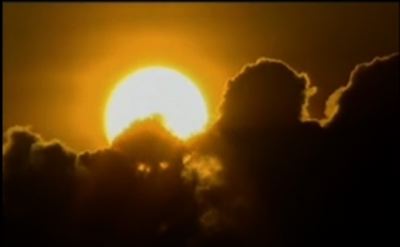I have never seen the likes of this before in my life. The New Zealand Herald has used its entire front page today to rail against Helen Clark and the Sisterhood over their attempt to buy next years election by using their Electoral Finance Bill to make previous illegal spending of taxpayer money, to promote themselves, legal and to stop debate during an election year.
The Herald, usually left leaning, has come out strongly against the bill and should be congratulated for their strong stand.
This bill, if passed through in November, will put New Zealand in the position that many dictator states now find themselves in. A Government that will stop at almost nothing to get re-elected and a population that wont be able to have their democratic right to voice opposition and if they do so they could be imprisoned.
New Zealanders as a whole don't seem to be angry about this bill and what it means. They should be. Is it that we just don't care that our democracy will be no longer or are we just too stupid to see what is happening?
Lenin, Marx, Mao and Hitler would have be proud of this bill.
C Darren Rickard 2007
The Herald Editorial
Editorial: Democracy Under Attack
5:00AM Monday November 12, 2007

When is the Government going to get this message: democracy is not a device to keep the Labour Party in power.
Practically every other participant in New Zealand politics - not only parties but other interested organisations and especially guardians of political rights - has voiced concern at the implications of the Electoral Finance Bill introduced to Parliament more than three months ago.
The Human Rights Commission has described the restrictions on election activity as a "dramatic assault" on fundamental rights which "undermines the legitimacy of political processes".
The Law Society says the bill would "make participation in our parliamentary democracy an arduous and perhaps even legally dangerous undertaking for ordinary New Zealanders".
They say this because it would be illegal in election year for any organisation other than a registered political party to spend more than $60,000 (perhaps a couple of full-page advertisements) to publicise a cause that might be deemed political.
In the face of near-universal condemnation, the bill should have been withdrawn. Instead it will be tweaked to dilute some of its worst features. But the attempt to restrict non-party participation in election discussion will remain.
Labour seems determined to use the time it has left to skew electoral laws in its favour.
Not only does it mean to make election debate the preserve of political parties, it has introduced this month a second electoral outrage - a bill to extend the law legalising the use of public money for political purposes that were ruled improper by the Auditor General after the last election.
The Clark Government's refusal to bow to public opinion on this subject beggars belief. It was staggering enough last year that Helen Clark and her lieutenants could not understand why nobody else regarded their electoral pledge card as innocent information.
Now, having grudgingly repaid the public purse, they are hell-bent on giving themselves the right to raid it again.
If these bills become law, politics will be largely confined to registered parties, and they will have to be able to use parliamentary funds for election campaigns.
Both measures are designed to favour the party that has devised them. Labour fears independent campaigns by the likes of the Exclusive Brethren much more than National fears the efforts of the PPTA or the Council of Trade Unions. And Labour believes it needs public money to balance covert contributions to the National Party.
Parties have different advantages. If National has more well-heeled donors, Labour probably has the more committed and articulate foot soldiers.
National's supposed advantages were of less urgent concern to Labour when it was polling well. Now in desperation it wants to screw the scrum. It has succumbed to the old conceit of the Left that the interests of the people are identical with its own.
The interests of any healthy democracy lie in unrestricted debate, not laws that favour incumbents with public finance and suppression of free speech.
If these bills pass, they will be Labour's epitaph.
C NZ Herald 2007

